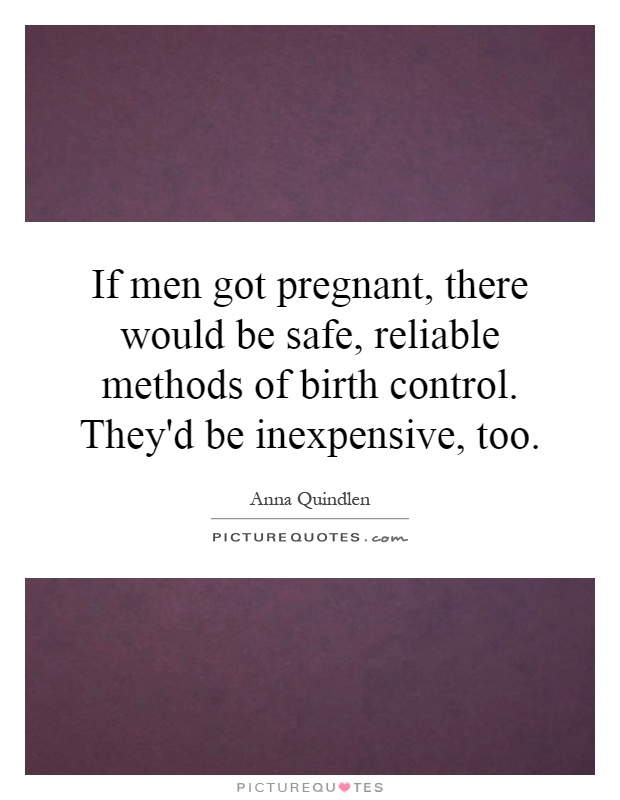If men got pregnant, there would be safe, reliable methods of birth control. They'd be inexpensive, too

If men got pregnant, there would be safe, reliable methods of birth control. They'd be inexpensive, too
Anna Quindlen, a renowned American author and journalist, is known for her insightful and thought-provoking commentary on a wide range of social issues. One topic that she has touched upon in her writing is the disparity in access to safe and reliable birth control methods between men and women. In a hypothetical scenario where men were able to become pregnant, Quindlen suggests that there would be a greater emphasis on developing affordable and effective birth control options for them.Quindlen's assertion that if men got pregnant, there would be safe, reliable methods of birth control that are also inexpensive, speaks to the gender disparities that exist in the realm of reproductive health. Currently, women bear the burden of preventing unwanted pregnancies through a variety of contraceptive methods, many of which come with their own set of risks and side effects. In contrast, men have limited options when it comes to birth control, with condoms and vasectomy being the most common choices.
If men were able to become pregnant, there would likely be a greater investment in research and development of male birth control methods. Pharmaceutical companies and researchers would be motivated to create new and innovative options that are both safe and effective. Additionally, the cost of these methods would likely be lower, as there would be a greater demand for affordable birth control options for men.
Quindlen's statement also highlights the societal attitudes towards reproductive health and responsibility. In many cultures, the burden of preventing pregnancy falls primarily on women, leading to a lack of accountability on the part of men. If men were able to become pregnant, there would be a shift in the way that society views contraception, with a greater emphasis on shared responsibility and equal access to birth control options.
Overall, Quindlen's assertion that if men got pregnant, there would be safe, reliable methods of birth control that are also inexpensive, sheds light on the gender disparities that exist in reproductive health. By imagining a world where men have equal access to affordable and effective birth control options, we can begin to address the inequalities that currently exist in this area.












 Friendship Quotes
Friendship Quotes Love Quotes
Love Quotes Life Quotes
Life Quotes Funny Quotes
Funny Quotes Motivational Quotes
Motivational Quotes Inspirational Quotes
Inspirational Quotes